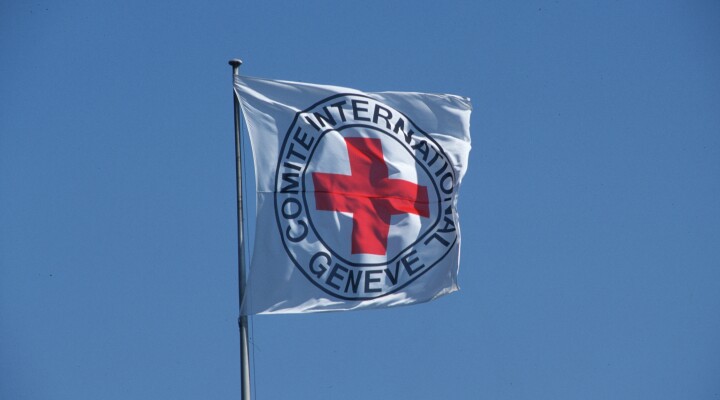BY MUSA IDRIS UMAR, MAY 21, 2025 | 05:14 AM
The International Committee of the Red Cross (ICRC), in partnership with the Nigerian Red Cross Society (NRCS), has delivered critical humanitarian assistance to hundreds of thousands of people affected by conflict, displacement, and disaster in Borno State throughout 2024.
According to the ICRC's latest annual facts and figures report, the organization implemented a wide range of interventions spanning healthcare, water and sanitation, livelihood support, protection, and disaster response.
Healthcare and nutrition support
The ICRC conducted 278,821 medical consultations at eight supported primary healthcare centres (PHCCs), including 69,971 antenatal visits and 8,282 deliveries.
Additionally, over 53,000 pregnant and lactating women were screened for malnutrition, with more than 19,000 referred for treatment. In response to the September 2024 floods in Maiduguri, the organization supported five primary healthcare centres and five mobile clinics, providing 243,991 consultations and mental health services to 750 individuals.
Surgical and physical rehabilitation
At the State Specialist Hospital Maiduguri (SSHM), 2,786 surgeries were performed for weapon-wounded patients.
The ICRC also provided physiotherapy sessions, exceeding 4,000, and delivered 163 prosthetic and orthotic devices to patients with disabilities.
Also, the organization trained doctors, nurses, and hospital staff to improve trauma care and emergency response.
Water, sanitation, and shelter
The ICRC's upgrades to the Alhamduri Water Project improved access to clean water for over 150,000 residents in Maiduguri.
Water supply projects in six other local government areas benefited over 166,000 internally displaced persons (IDPs).
The organization also constructed latrines for over 13,000 individuals and provided shelter support to more than 14,000 people, including 80 permanent shelters for flood-affected families.
Livelihoods and emergency relief
In 2024, the ICRC provided essential household items to over 62,000 people, including flood victims, displaced families, and those wounded in conflict.
The organization also extended livelihood grants and vocational training to 2,544 individuals and supported 46,842 people during the lean season to prevent malnutrition.
Protection and psychological support
ICRC continued its efforts to reunite families separated by conflict, registering 791 new missing persons cases, resolving 752 cases, and reuniting seven unaccompanied minors with their families.
Mental health and psychosocial services were provided to 3,661 individuals, while over 9,600 people attended awareness sessions.
Addressing explosive risks and promoting safety
To reduce the risk posed by unexploded ordnance, the ICRC conducted 83 risk awareness sessions, reaching over 25,000 people across Borno State.
The organization also trained over 170 professionals, including NRCS staff and health workers, to provide psychosocial care.
Advocacy and law enforcement engagement
The organization engaged over 400 personnel from the Armed Forces and Police in sessions on international humanitarian law and humanitarian principles.
Efforts to prevent sexual violence included training for 275 NRCS volunteers and community leaders, while support was provided to 21 survivors.
The ICRC's interventions in 2024 served as a lifeline for many in Borno State, providing essential services and promoting the dignity and safety of the most vulnerable populations.
Through close collaboration with the Nigerian Red Cross and local authorities, the organization continues to address the humanitarian needs of those affected by conflict, displacement, and environmental challenges.

